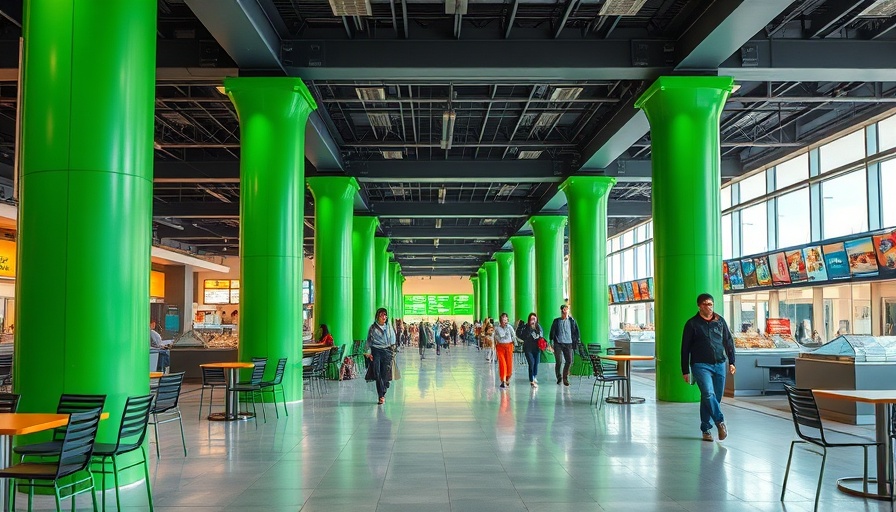
Super 88 Food Court's Troubling Closure: A Wake-Up Call for All
The Super 88 Market's food court in Allston has been shuttered since June, following concerning findings from health inspectors regarding heavy rodent activity and poor sanitary conditions. The closure, affecting a variety of vendors, highlights not only the immediate health risks but also broader implications for small businesses reliant on foot traffic.
What Led to the Closures?
During routine inspections, city officials found multiple stalls, including popular spots like Ali's Uyghur Kitchen and Grasshopper Vegan Restaurant, failing to meet health codes. Issues cited included grease buildup, significant rodent activity, and food safety risks. The situation became untenable, prompting authorities to mandate a voluntary closure for affected vendors while allowing the Hong Kong Supermarket and Isshindo Ramen—located in the same complex—to remain operational.
The Voices of the Vendors
Amidst the turmoil, Ali Nu, the owner of Ali’s Uyghur Kitchen, expressed frustration at the management of Super 88, accusing them of negligence regarding necessary maintenance. "They should have fixed these problems already, and they’re not doing it," Nu stated, emphasizing the economic strain on businesses unable to operate. For many vendors, the closure is not about lost revenue alone; it signifies a fight for their livelihoods in a challenging economic environment.
Health Concerns Impacting Local Culinary Scene
This incident shines a light on health and safety standards within the all-important food service sector in Boston. As locals fondly recall the eclectic dining options at Super 88, one cannot overlook the risks posed by unsanitary conditions. What does this mean not just for employees but for patrons eager to return to their favorite eateries? With a focus on health post-pandemic, such closures could deter customers more than they realize.
What Happens Next?
According to the City of Boston’s Inspectional Services Department, re-inspection will only take place once all necessary plumbing repairs are completed, an issue made worse by delays in parts procurement as mentioned by Super 88 management. The road to reopening is still unclear, causing concern that some vendors may not survive this lengthy hiatus.
Conclusion: A Call for Community Support
As the situation evolves, it is crucial for the Boston community to remain aware of the implications of these closures. Supporting local businesses during this trying time can help revive the vibrant culinary landscape that was once a hallmark of the Super 88 food court. Upkeeping health standards is essential, but so is nurturing the small businesses that contribute to the cultural tapestry of Boston. Keep an eye out for your favorite vendors and consider advocating for their swift reopening.
 Add Row
Add Row  Add
Add 




Write A Comment